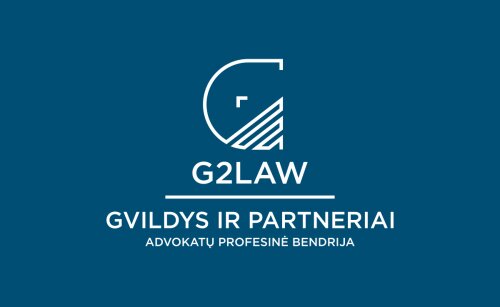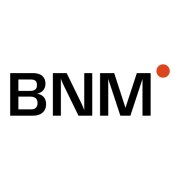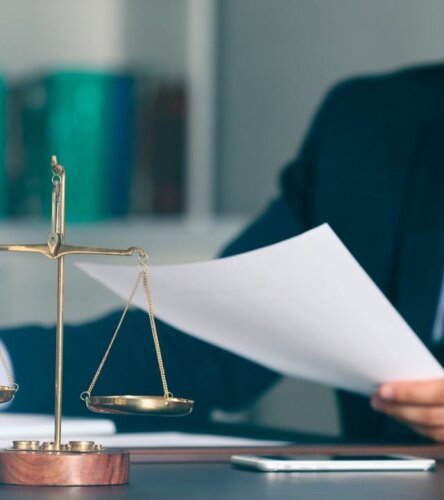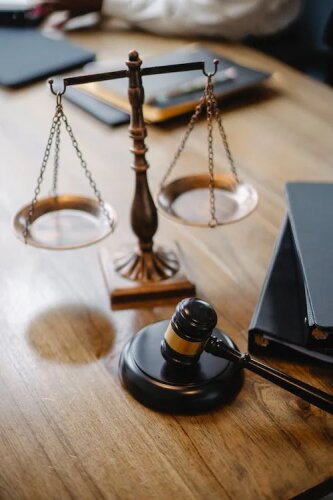Best Licensing Lawyers in Republic of Lithuania
Share your needs with us, get contacted by law firms.
Free. Takes 2 min.
Or refine your search by selecting a city:
List of the best lawyers in Republic of Lithuania
About Licensing Law in Republic of Lithuania:
Licensing in Republic of Lithuania refers to the process by which individuals or businesses obtain official permission to engage in certain activities or offer certain services. This is typically regulated by specific laws and regulations to ensure that license holders meet certain standards and qualifications.
Why You May Need a Lawyer:
There are several situations where you may need a lawyer for licensing issues in Lithuania, such as applying for a license, appealing a licensing decision, resolving disputes related to licensing, or navigating complex regulations and requirements.
Local Laws Overview:
In Lithuania, licensing is governed by various laws, including the Law on Licensing of Economic Activities, which sets out the procedures and requirements for obtaining licenses. It is important to familiarize yourself with these laws to ensure compliance and avoid legal issues.
Frequently Asked Questions:
1. What types of activities require a license in Lithuania?
In Lithuania, various activities such as running a restaurant, operating a taxi service, practicing law or medicine, or selling alcohol require a license.
2. How do I apply for a license in Lithuania?
To apply for a license in Lithuania, you usually need to submit an application to the relevant authority along with supporting documents and fees.
3. Can I appeal a licensing decision in Lithuania?
Yes, you can appeal a licensing decision in Lithuania by lodging an appeal with the administrative court within a specified timeframe.
4. What are the consequences of operating without a license in Lithuania?
Operating without a license in Lithuania can result in fines, penalties, or even criminal charges, depending on the nature of the activity and the severity of the violation.
5. How long does it take to obtain a license in Lithuania?
The time it takes to obtain a license in Lithuania can vary depending on the type of license, the complexity of the application, and the efficiency of the licensing authority.
6. Do I need a lawyer to apply for a license in Lithuania?
While it is not mandatory to have a lawyer to apply for a license in Lithuania, having legal representation can help ensure that your application is complete, accurate, and compliant with regulations.
7. Can a lawyer help me with license renewal in Lithuania?
Yes, a lawyer can help you with the process of renewing your license in Lithuania, ensuring that all requirements are met and documentation is in order.
8. What are the costs associated with obtaining a license in Lithuania?
The costs associated with obtaining a license in Lithuania can vary depending on the type of license, the administrative fees, and any additional expenses such as legal fees.
9. Are there any exemptions from licensing requirements in Lithuania?
There are some exemptions from licensing requirements in Lithuania for certain activities or individuals, but these exemptions are often limited and specific.
10. How can I verify the validity of a license in Lithuania?
You can verify the validity of a license in Lithuania by contacting the relevant licensing authority or checking their online database of licensed individuals or businesses.
Additional Resources:
If you need legal advice or assistance with licensing in Lithuania, you can contact the Lithuanian Bar Association, the Ministry of Economy and Innovation, or seek help from a qualified lawyer specializing in licensing law.
Next Steps:
If you require legal assistance with licensing in Lithuania, consider contacting a lawyer with experience in licensing law to help you navigate the process, address any legal issues, and ensure compliance with regulations.
Lawzana helps you find the best lawyers and law firms in Republic of Lithuania through a curated and pre-screened list of qualified legal professionals. Our platform offers rankings and detailed profiles of attorneys and law firms, allowing you to compare based on practice areas, including Licensing, experience, and client feedback.
Each profile includes a description of the firm's areas of practice, client reviews, team members and partners, year of establishment, spoken languages, office locations, contact information, social media presence, and any published articles or resources. Most firms on our platform speak English and are experienced in both local and international legal matters.
Get a quote from top-rated law firms in Republic of Lithuania — quickly, securely, and without unnecessary hassle.
Disclaimer:
The information provided on this page is for general informational purposes only and does not constitute legal advice. While we strive to ensure the accuracy and relevance of the content, legal information may change over time, and interpretations of the law can vary. You should always consult with a qualified legal professional for advice specific to your situation.
We disclaim all liability for actions taken or not taken based on the content of this page. If you believe any information is incorrect or outdated, please contact us, and we will review and update it where appropriate.
Browse licensing law firms by city in Republic of Lithuania
Refine your search by selecting a city.














